PETA's Vital Work
We believe that animals have an intrinsic worth of their own, quite apart from their utility to humans, and should not be treated as commodities. Therefore, PETA’s motto is “Animals are not ours to experiment on, eat, wear, use for entertainment, or abuse in any other way.”
Animals are
Not Ours to Experiment on
PETA had another milestone year in our work to end the use of animals in laboratories. As we ended 2022, Congress passed, and President Biden signed into law, the FDA Modernization Act 2.0, which mirrors a request that PETA scientists made to the U.S. Food and Drug Administration (FDA) in 2020 to remove the mandate requiring animal tests for new drugs and give the FDA authority to consider non-animal methods.
PETA scientists coauthored publications in prestigious journals and attended and gave presentations at scientific conferences. PETA Science Consortium International e.V. also presented awards to researchers embracing non-animal methods.
PETA scored a legal victory against members of a public animal care committee of the University of Washington, who were trying to use the First Amendment to hide their identities. Likewise, a court ordered Oregon Health & Science University to pay PETA more than $400,000 after the university tried to hide videos of absurd experiments on voles who had been dosed with alcohol.
Other significant victories involving animal experiments at universities include persuading the University of Tennessee College of Medicine to stop using live animals in surgical and emergency medical residency training at its Chattanooga campus and getting Texas A&M University to confirm that the healthy dogs transferred to its veterinary school from its notorious canine muscular dystrophy laboratory had been released for adoption.
We prevented dozens of animals from being mutilated and killed each year in surgical training by donating two new anatomically correct human simulators each to Albania’s and Iraq’s Advanced Trauma Life Support programs.
An uproar initiated by PETA put a stop to a plan to build a huge monkey warehouse in Florida for the purpose of supplying the animals to laboratories.
After a PETA investigation into an NIH-funded Colombian research center exposed deplorable living conditions for monkeys and mice, the lab was shut down, all the animals were rescued, and NIH ended its funding. Colombian actor Jennifer Arenas and members of Congress supported PETA’s campaign.
PETA persuaded Ford Motor Company to ban all animal testing and got General Motors to upgrade its formal policy to prohibit the funding of animal tests, in addition to their being conducted and commissioned.
The U.S. Navy abruptly stopped funding gruesome decompression sickness experiments on sheep at the University of Wisconsin–Madison after PETA sent a letter to the secretary of the Navy. Additionally, after PETA exposed barbaric treatment of animals during Cobra Gold, a joint multinational military exercise held annually in Thailand, an official confirmed that no animals would be killed at this year’s event.
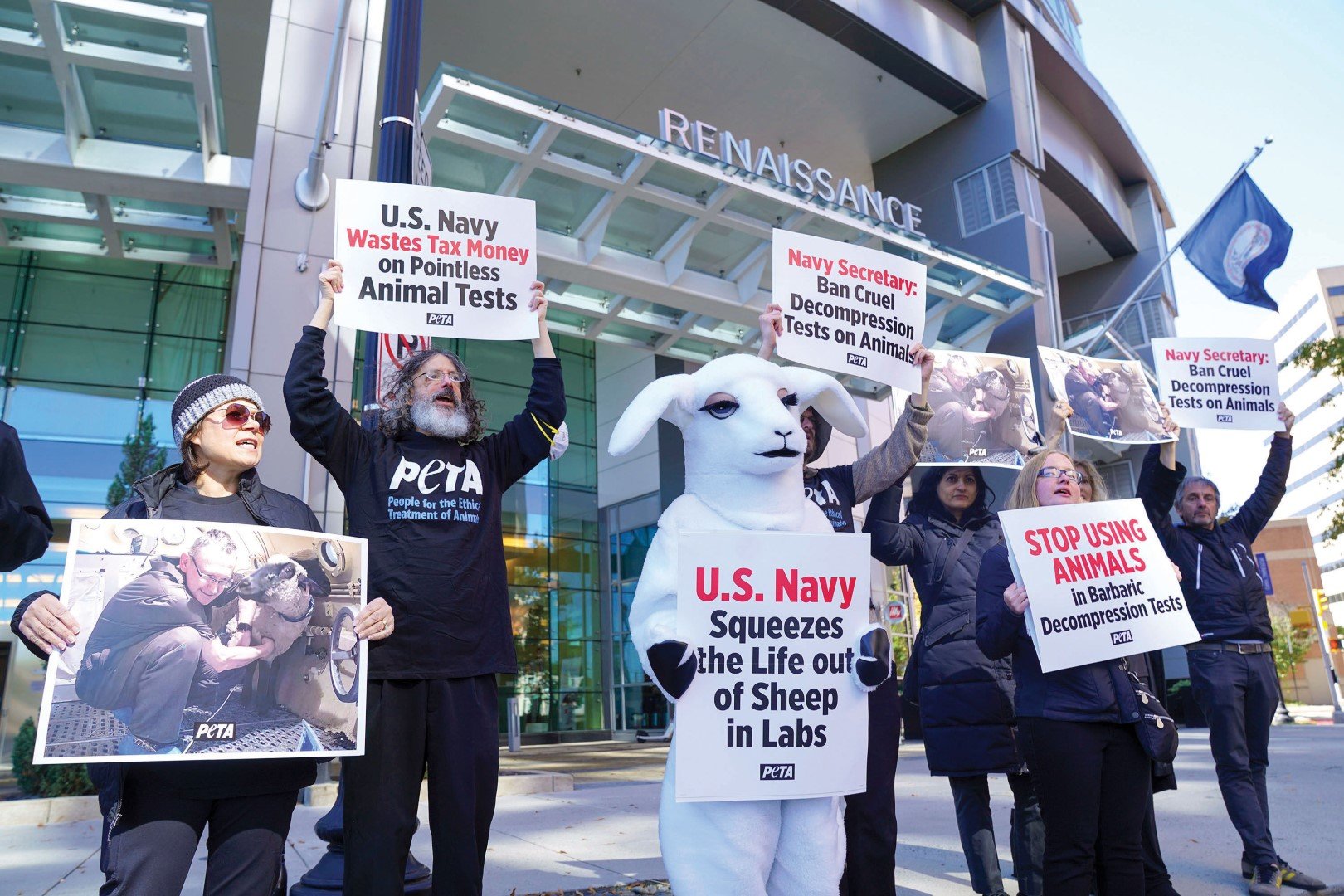
Animals are
Not Ours to Eat
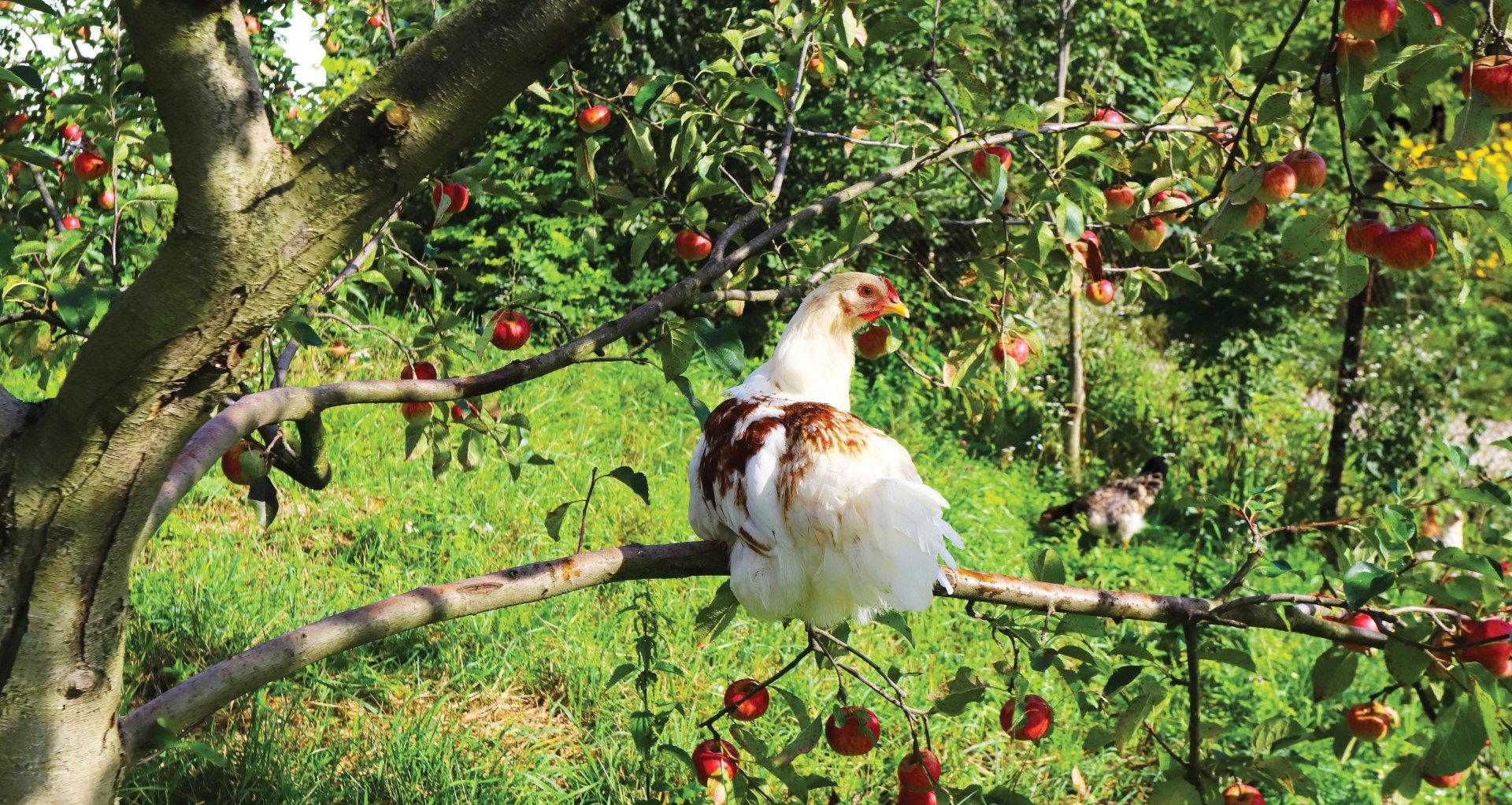
PETA exposes what happens to the billions of animals who are abused and killed in the food industry every year, calls on authorities to hold abusers to account, and makes eating vegan easy and popular.
We exposed many atrocities at slaughterhouses: A Pennsylvania slaughterhouse worker kicked a lamb in the face; workers at a Perdue slaughterhouse twisted chickens’ necks; animals were shot in the head repeatedly in slaughterhouses in California, Maryland, Michigan, and North Carolina; hundreds of infant calves died in freezing temperatures en route to an Idaho slaughterhouse; and pigs who were still conscious were hung upside down on a bleed rail in North Carolina. We also released an op-ed pointing out that the Food Safety and Inspection Service’s failure to seek criminal charges for these illegal acts emboldens slaughterhouses to continue violating the law.
Our North Carolina “ag-gag” case ended in victory! The appellate court ruled that undercover investigations and blowing the whistle are protected by the First Amendment. Based on evidence from our 2021 investigation into Plainville Farms, nine ex-workers were convicted of cruelty.
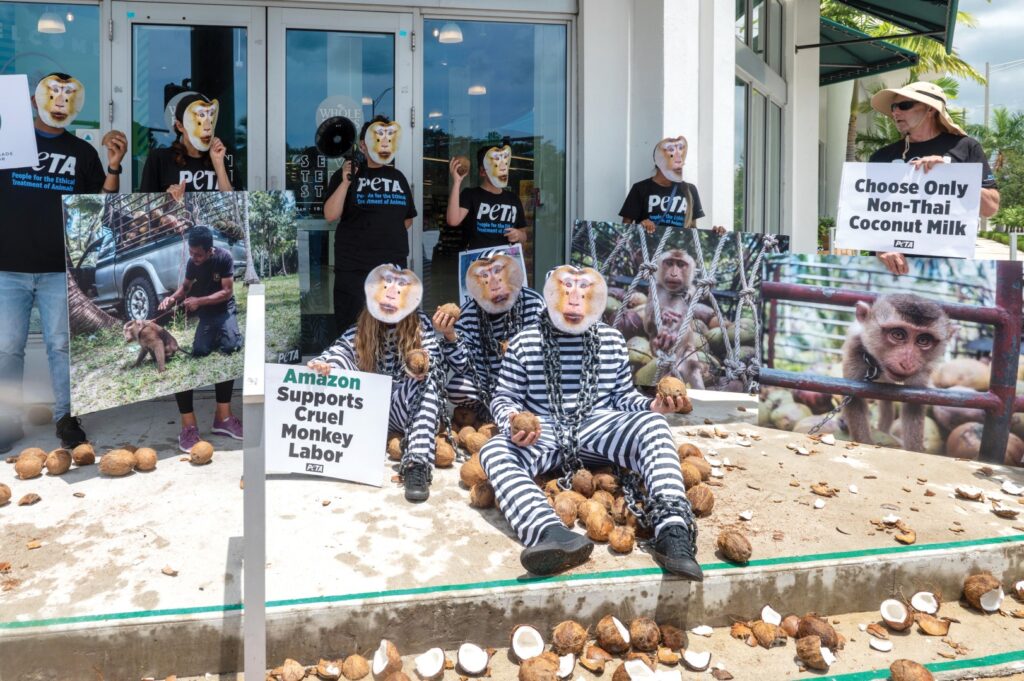
PETA’s campaign to prevent monkeys in Thailand from being forced to pick coconuts persuaded wholesale food distributor Performance Food Group to stop selling Thai coconut milk. HelloFresh and Purple Carrot will also stop obtaining coconut milk from Thailand. Now we’ve started a new international campaign against Whole Foods, which sells several brands of Thai coconut milk.
We pushed Starbucks to drop its vegan milk upcharge with a blockade of PETA “cows” outside the world’s largest Starbucks location, in Chicago. We’ve seen progress with other coffee chains, and now it’s time for Starbucks to do the right thing for animals and the environment.
PETA’s “Hell on Wheels” chicken truck, complete with shocking images of chickens bound for slaughter and the sound of them calling out in distress, made appearances in dozens of metropolitan areas.
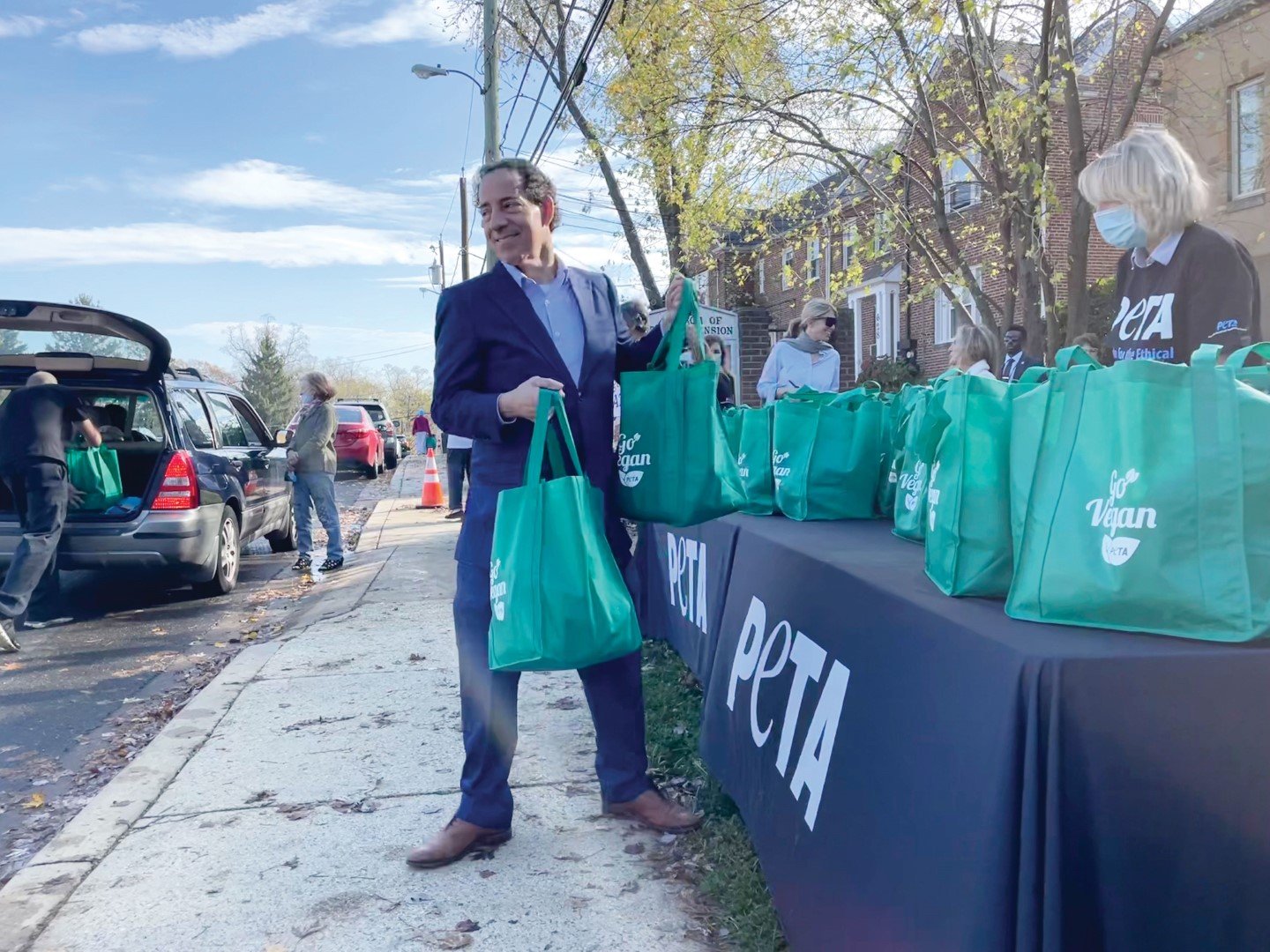
U.S. Rep. Jamie Raskin and his wife, Sarah Bloom Raskin, the former deputy secretary of the U.S. Department of the Treasury, joined PETA to hand out 150 bags filled with vegan roasts, fresh produce, and tofu to families in need as part of our “ThanksVegan” giveaway to honor their late son and animal rights activist, Tommy Raskin. Other friends who helped draw massive attention to the abuse of animals for food included Alisun, James Cromwell, Alan Cumming, Ashley Jackson, Mike Posner, Michelle Renaud, and Sarah Silverman.
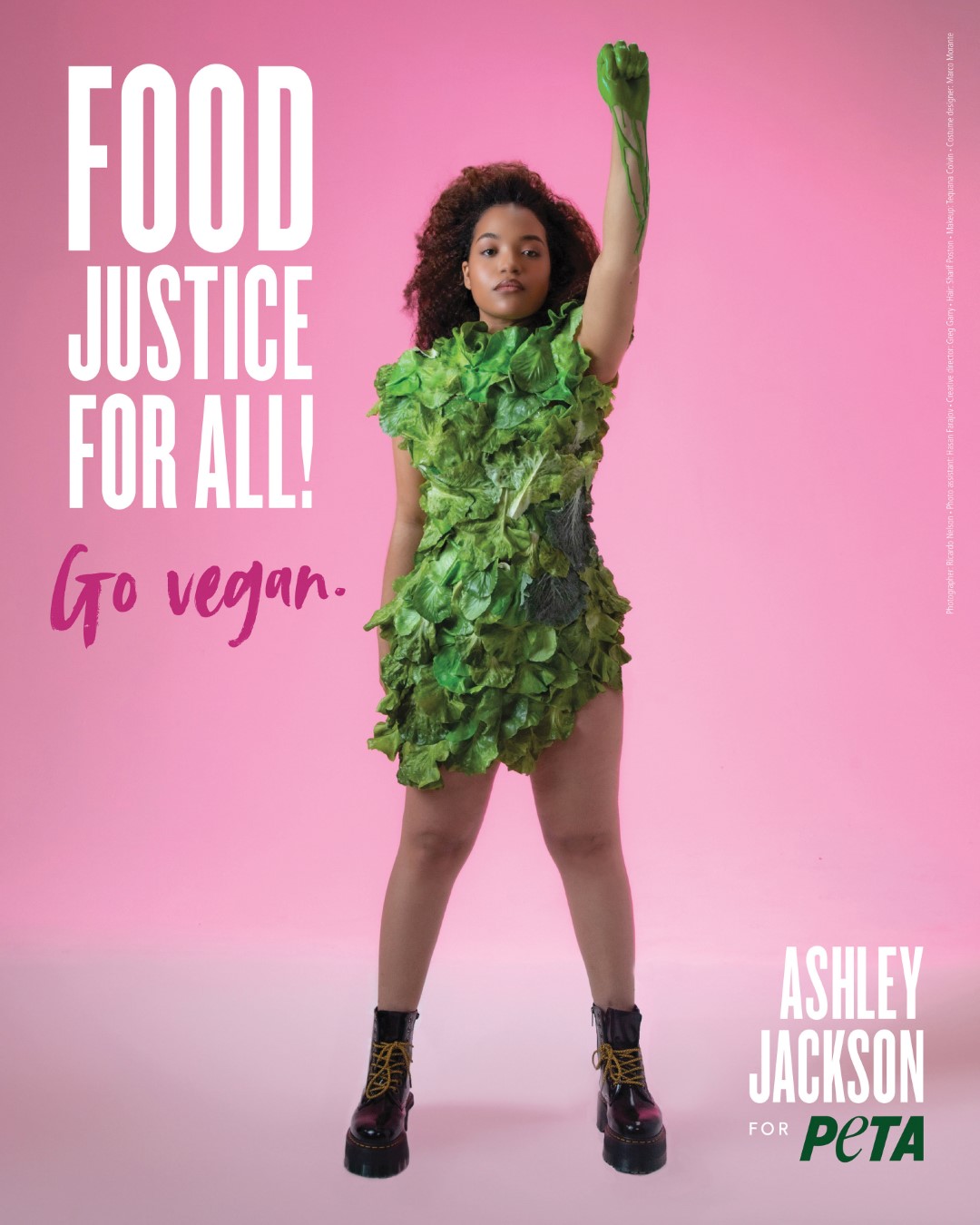
Note: PETA supports animal rights, opposes all forms of animal exploitation, and educates the public on those issues. PETA does not directly or indirectly participate or intervene in any political campaign on behalf of or in opposition to any candidate for public office or any political party.
Animals are
Not Ours to Wear
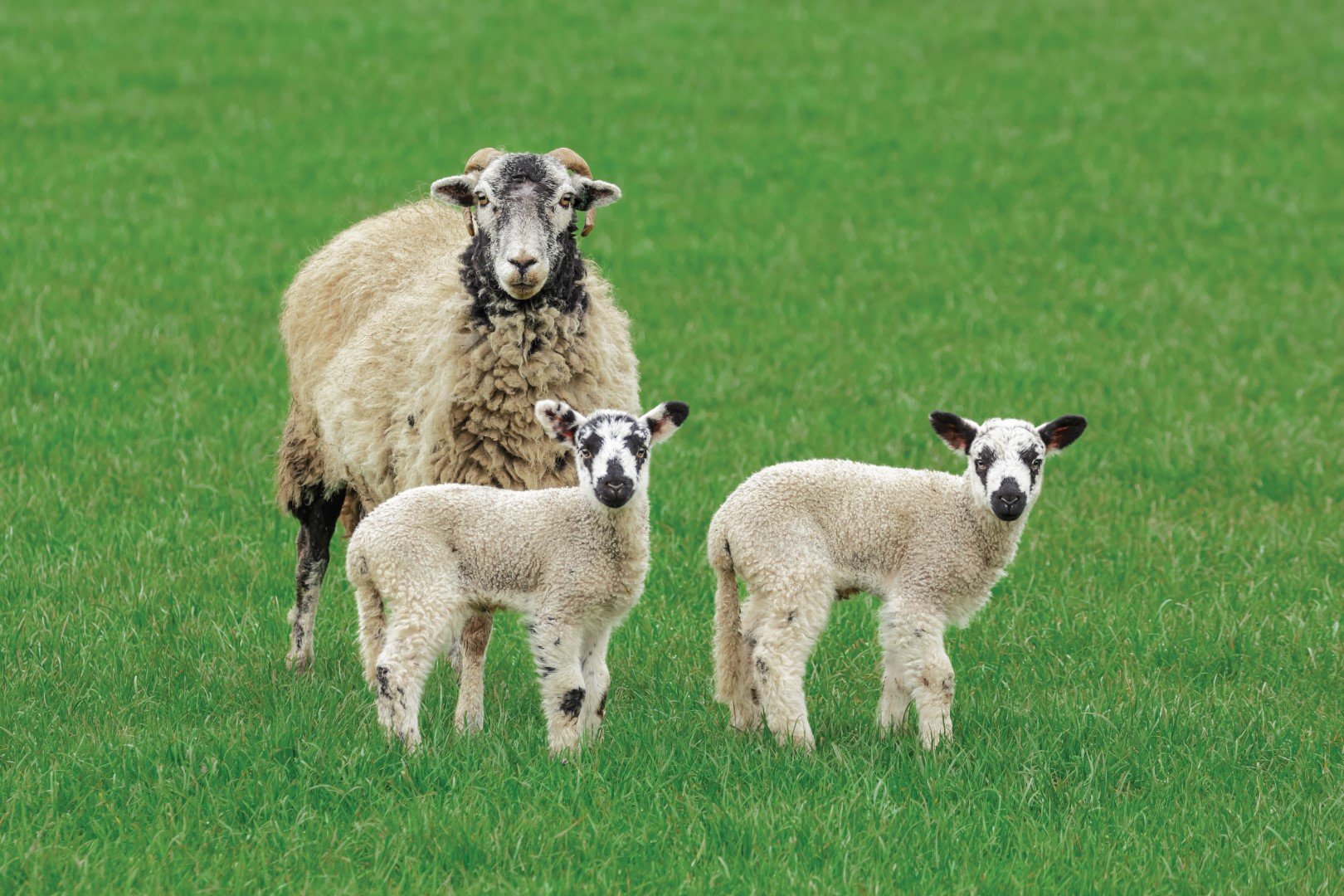
PETA pushes society to evolve beyond the practice of stealing animals’ skin, fur, feathers, and hair and wearing them as sweaters, watchbands, jackets, and shoes.
We worked with numerous companies to get them to stop selling materials made from animals. Deckers Outdoor Corporation, whose brands include UGG, Koolaburra, Sanuk, HOKA, and TEVA, committed to discontinuing the use of alpaca wool. Victoria’s Secret and Genesco, which owns the brands Johnston & Murphy, Journeys, schuh, Little Burgundy, and others, will no longer include cashmere. And after learning from PETA that the mohair industry leaves angora goats with bloody wounds, furniture retailers Room & Board, Lulu and Georgia, and Nathan Anthony joined more than 150 other brands that have agreed to stop selling the cruelly obtained fiber.

We sent giant “ducks” alongside PETA supporters to the H&M annual meeting in Sweden to protest the company’s use of down. And when PETA Asia’s stunning investigation into Responsible Down Standard–certified suppliers revealed that they weren’t “responsible” at all, we called out H&M’s animal welfare standards as the sham that they are. We also sent a letter to cashmere company Naadam about its misleading “cruelty-free” cashmere claims, and within an hour, it had removed the objectionable statements!
PETA’s campaign against luxury giant Hermès to end the sale of crocodile and alligator skins prompted another eye-catching protest outside its department store on Rodeo Drive in Beverly Hills, California. An activist painted as a crocodile was confined to a dirty concrete pit to replicate the conditions that these intelligent animals are kept in before being slaughtered for fashion accessories.
We escalated our campaign to get Urban Outfitters to stop selling animal-derived materials by launching Urban Outraged, which features “genuine human leather” clothing and accessories. Our gruesome “fashion show” made appearances in New York City, Philadelphia, and Miami and has been extensively covered by the media, including online articles in the New York Post, USA Today, ABC News, and more.
PETA launched a $1 Million Vegan Wool Challenge, which offers an award to the first entrant to develop a vegan wool material that is similar or superior to sheep’s wool and adopted by a major clothing brand. Now that’s fashion-forward!

We thank Kim Chi, Ava Dash, Crystal Hefner, Joaquin Phoenix, and Alicia Silverstone for helping PETA generate awareness of the cruelty hidden in animal-derived materials.
Animals are
Not Ours to Use for Entertainment
PETA’s vigorous campaigns to end the use of animals in the entertainment industry scored big.
After PETA lawsuits and activism kneecapped the big cat industry, the Big Cat Public Safety Act was signed into law, banning private ownership of big cats and prohibiting public contact with them.
After a PETA investigation into bush track racing, the California Horse Racing Board banned licensed jockeys, trainers, and owners from participating in these illegal races.
A lawsuit brought by PETA and concerned citizens against roadside outfit Waccatee Zoo in South Carolina settled, resulting in the permanent closure of the facility and bans on its operators from owning or exhibiting wild or exotic animals (with the exception of free-roaming peafowl), breeding domestic animals or exploiting them for profit, and working or volunteering at other roadside zoos. We helped save animals held at Waccatee Zoo, the Union Ridge Wildlife Center in Ohio, and the Tri-State Zoological Park in Maryland—our largest-ever roadside zoo rescue!
After PETA filed numerous complaints with various federal and state authorities detailing egregious animal welfare violations and injuries to customers at shopping mall petting zoo SeaQuest Trumbull in Connecticut, it announced that it is permanently shutting down.
American Greetings confirmed that it had stopped selling cards featuring demeaning images of great apes. Walmart banned the offensive cards from its stores in the U.S. and Canada, and Walgreens banned the cards from its nearly 9,000 stores.
After hearing from PETA, Virtuoso—a leading global network of travel agencies—agreed to stop offering horse and camel rides at the pyramids of Giza. It also shared PETA Asia’s investigation with all affected travel partners. Travel companies Abercrombie & Kent USA, AdventureWomen, and Geographic Expeditions also dropped exploitative camel rides.
Greenbrook TMS Centers of Alaska and Cue Health turned their backs on the cruel Iditarod dog-sled race, and AARP stopped promoting all dog-sledding activities.
After a major PETA campaign that included dozens of protests and e-mails from over 100,000 of our supporters, UniverSoul Circus went animal-free, and following months of protests by PETA and local activists, the Moolah Shrine Circus stopped featuring elephant acts.
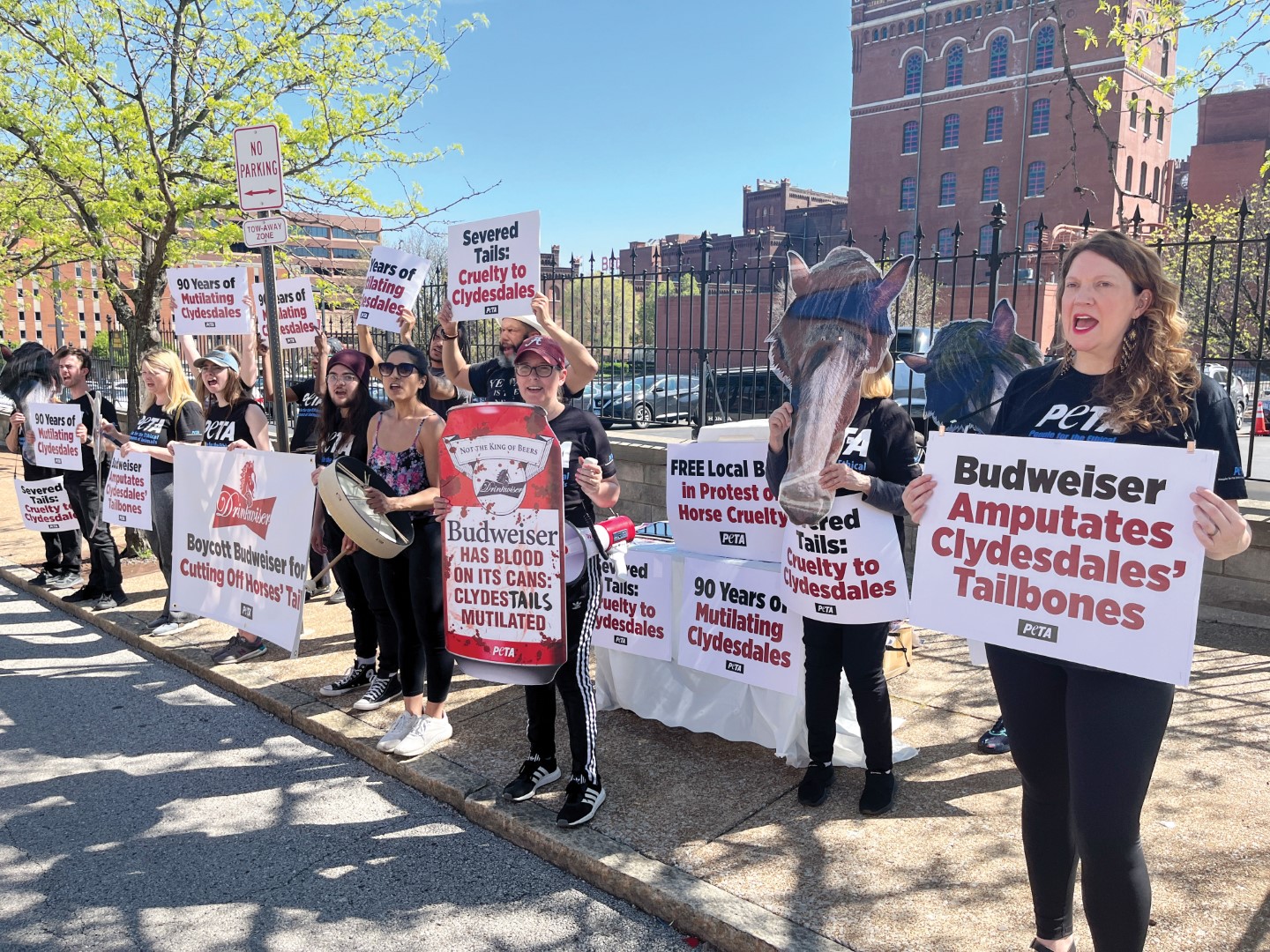
After dozens of PETA protests, nationwide ad campaigns, and pleas from more than 121,000 concerned consumers, Anheuser-Busch stopped amputating the tails of the Budweiser Clydesdales.
A coalition of local groups and PETA Latino succeeded in getting a court to stop two bullfights scheduled in Puebla, Mexico.
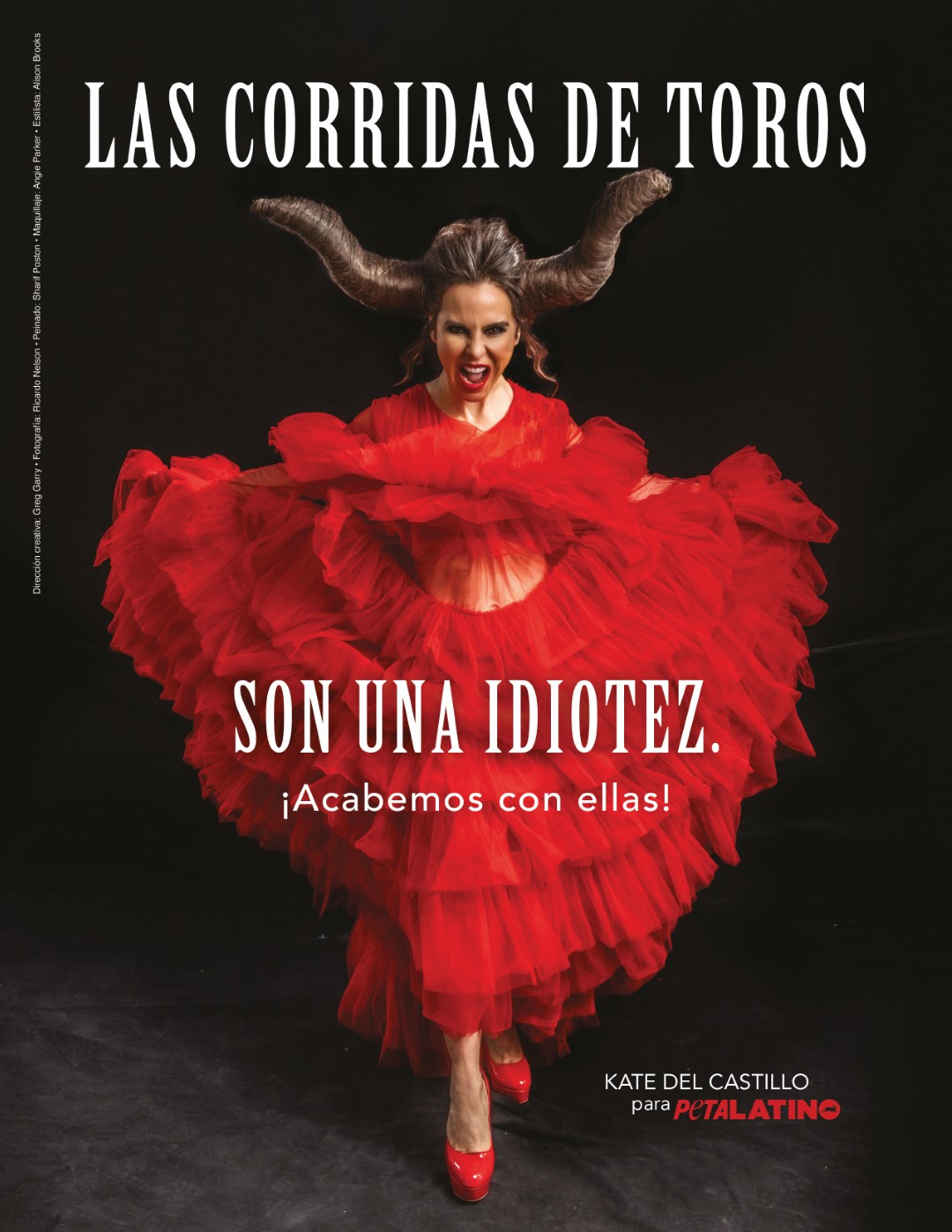
We thank Alec Baldwin, Kate del Castillo, Judy Greer, Lala Kent, and Diane Warren for their help with these campaigns.
Animals are
Not Ours to Abuse in Any Other Way
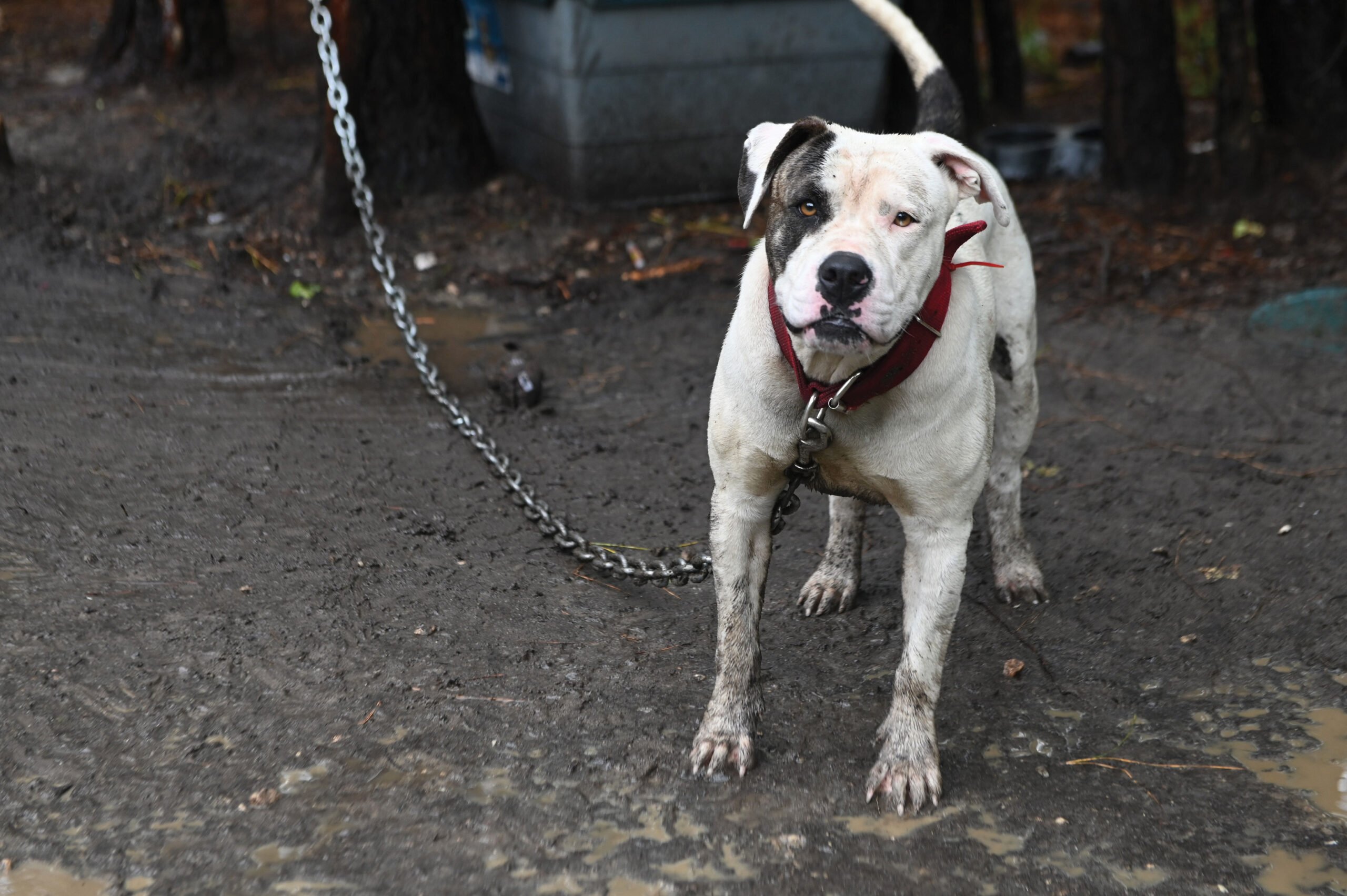
PETA educates people about cruelty to animals, helps animals in danger, and holds abusers accountable.
PETA went undercover at the Westminster Kennel Club Dog Show and several pet stores to show that dog breeders, handlers, and sellers continue to profit from the trade in French bulldogs and other breathing-impaired breeds. After discussions with PETA, the Ad Council committed to not featuring images of breathing-impaired dogs in any newly produced advertising or marketing materials going forward, joining others including Ally Financial, Dieste, Ogilvy, Leo Burnett Chicago, and Wunderman Thompson.
PETA fieldworkers are out every day in impoverished regions where dogs are often chained or penned outdoors. Fieldworkers rescued Daisy Mae (formerly called Midnight), who was chained outside amid piles of junk, and she was adopted by a loving family. And when Buster and Zoey’s guardian was diagnosed with a terminal illness and could no longer care for the two senior Chihuahuas, PETA didn’t hesitate to step in—the tiny pair now lives with a PETA staffer.
After our undercover investigation and legislative work led to freedom for 4,000 beagles in 2022 from Envigo’s hideous, now-shuttered puppy-breeding mill, which supplied the dogs to laboratories, we exposed the great lengths to which U.S. Department of Agriculture leaders went to protect the disgraced facility. Two have since resigned.
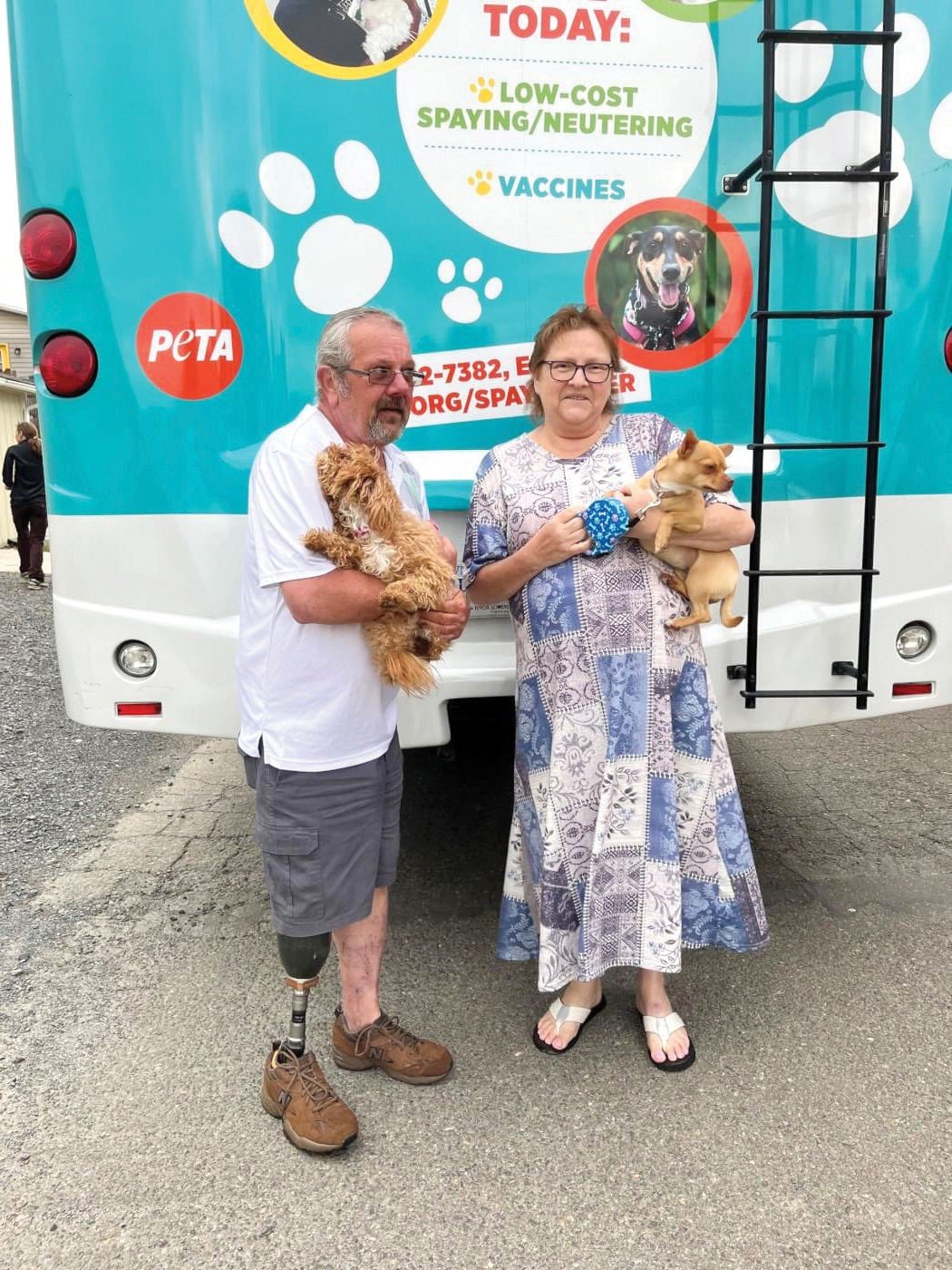
We took two mobile spay/neuter clinics on a 5.5-hour trek to Galax, Virginia, where we teamed up with other groups to perform free sterilization surgeries on more than 150 dogs, as well as vaccinating and microchipping them, for their grateful guardians over the course of two days.
PETA responded to emergencies across the country. In Pleasant Hill, Missouri, we got officials to confiscate 30 dogs being kept outdoors in freezing-cold temperatures by a hoarder. We organized the surrender, trapping, and transport of more than 50 cats, three adult dogs, and 23 puppies to a local shelter in Savannah, Georgia. And we secured the rescue of three adult dogs, four puppies, and six cats who were abandoned by their owner in Shelley, Idaho.
After PETA rallied community members to take action, the city council in West Hollywood, California, passed the first citywide ban on vile glue traps in the U.S.
With a push from PETA, Clark County, Nevada, banned the retail sales of dogs, cats, rabbits, and pot-bellied pigs.
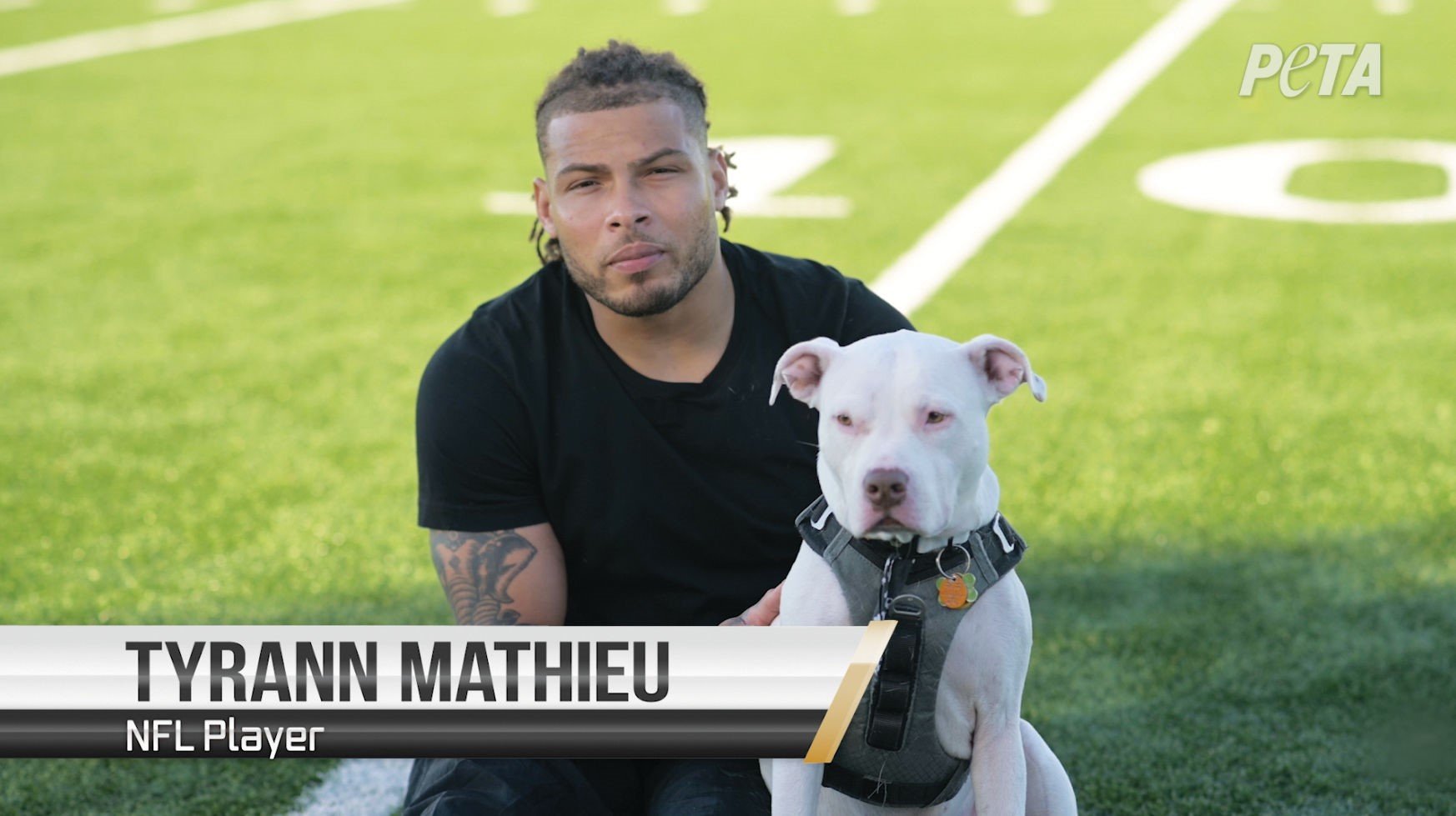
We received help with our anticruelty campaigns from Chris Diamantopoulos, Jonathan Franzen, Danai Gurira, Tyrann Mathieu, Carla Morrison, Ron Perlman, Emilio Rivera, Theo Rossi, Victoria Scone, and Amanda Seales.
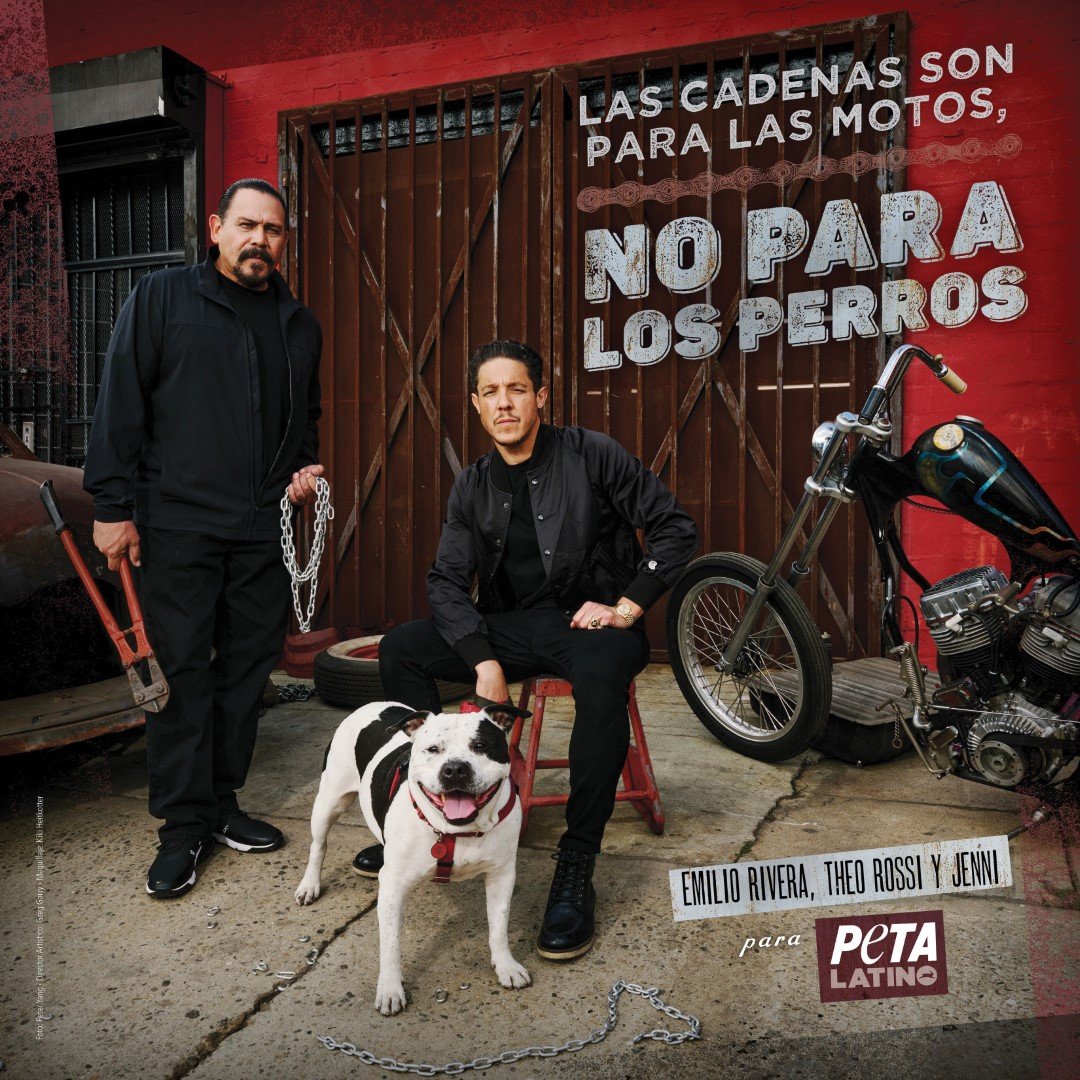
Animal Rights:
The Next Generation
PETA’s youth divisions are the number one force galvanizing young people to reject the speciesist status quo and change the future for animals.
PETA reignited our innovative youth program, peta2, with a new website featuring content for young people in high school and college. To spread the word, we launched a TikTok channel and attended music festivals to talk about animal rights. We also invited young people to participate in our Abduction virtual reality, empathy-building experience. Abduction has visited 52 university campuses, transporting people into the lives of animals used for laboratory experiments through the analogy of an alien abduction in which humans are the test subjects.
Students Opposing Speciesism (SOS) is a PETA-backed revolution led by Gen Z activists. At the University of California–Davis, an SOS hub held a protest targeting the Davis primate research center. The protest included two people dressed as monkeys in cages. On the other side of the country, an SOS group held an “End Speciesism” protest at the busy intersection of Wall Street and Broadway in New York City. And an SOS campus rep at the University at Buffalo hosted a huge Plant-Powered Ball, complete with vegan catering, music, dancing, literature, and more.
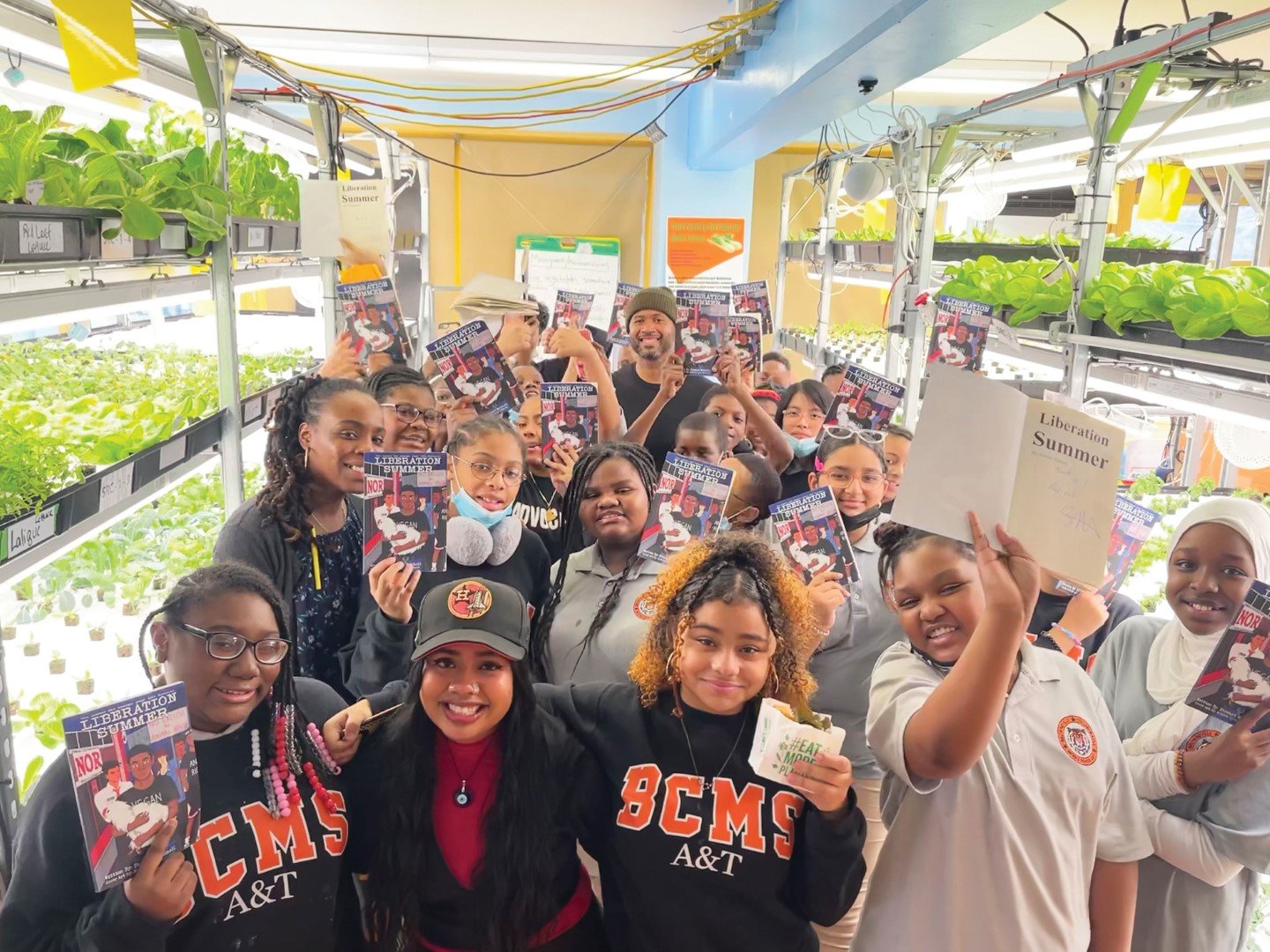
PETA’s humane education division, TeachKind, has been busy! After learning that a Connecticut library was hosting animal exploiter SeaQuest for an event, we sent a letter voicing our concerns. The library thanked us for the information and agreed not to book it in the future. TeachKind organized “Meet the Author” events at five New York City–area elementary schools with Stewart Mitchell, author of Liberation Summer. In Philadelphia, TeachKind put up an anti-bullying billboard near a school district in which we’ve responded to multiple cases of cruelty to animals carried out by young people.

The TeachKind Science dissection pilot program inspired teachers to agree not to use animals in their dissection lessons, and we donated SynFrogs (synthetic frog models) for students to use. We had 30 schools participate during its first year! TeachKind awarded the Compassionate School Award to Atlas Vegan Community School, the first primary school in Uganda to give students all-vegan food. We also sent it free teaching materials and a $1,000 donation. And TeachKind’s robotic elephant, Ellie, has now reached more than 100,000 kids with her message of kindness.

PETA Kids launched an animal rescue experience on the extremely popular Roblox game Seaboard City, and actor Cooper Barnes and sisters and actors Violet and Madeleine McGraw helped bring awareness to our campaigns.
PETA's
Global Compassion Fund

PETA’s Global Compassion Fund helps groups provide animals in dire situations around the world with vital resources.
As thousands of Ukrainians rapidly fled rising floodwaters resulting from the destroyed Kakhovka dam, rescuers supported by PETA’s Global Compassion Fund headed into the danger zone to save desperate animals. This urgent mission was in addition to the ongoing work rescuing animals and distributing food for dogs, cats, horses, and donkeys in war-torn Ukraine. Since Russia invaded the country in 2022, PETA Germany and its partners have rescued over 12,000 cats and dogs from Ukraine and helped deliver more than 3 million pounds of provisions.
When earthquakes rocked Syria and Turkey, PETA’s Global Compassion Fund was a lifeline for dogs, cats, and other survivors—helping activists rescue 290 dogs and cats.
- One rescue team found Tarkan, a dog with a broken leg and ingrown nails. Team members carefully transported him to a clinic for surgery. Two months later, he was adopted.
- Rescuers also saved Pisa, a cat who was all alone in a dilapidated building that was leaning like the Tower of Pisa. They coaxed the terrified survivor into a carrier and got him to safety. Later, he was adopted by a PETA staffer.
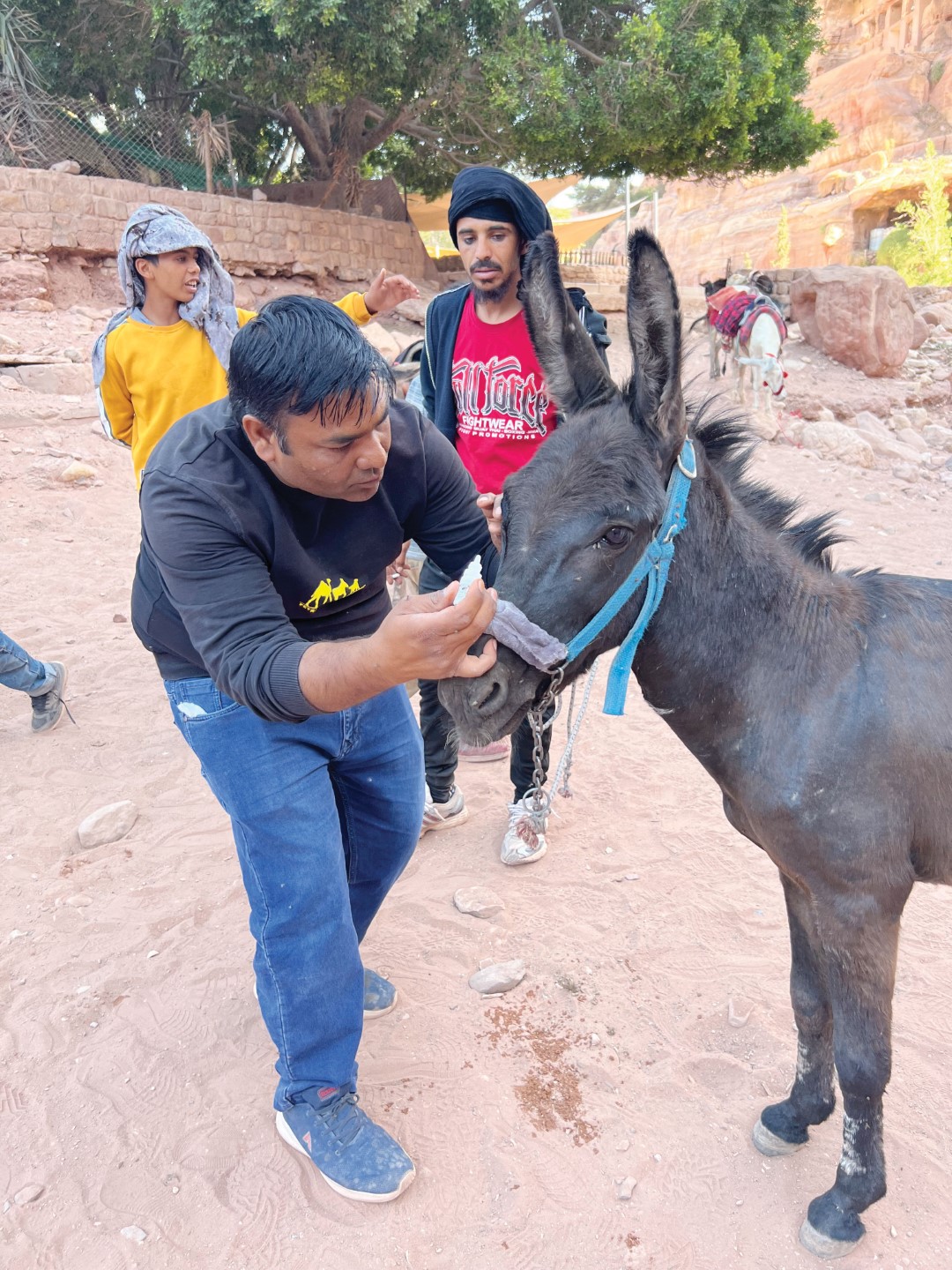
In Petra, Jordan, PETA supports a free veterinary clinic for animals who are forced to carry tourists on their backs as well as for any animal who lives in or around the ancient city. The clinic provided much-needed veterinary services to animals who had never before received any medical care. It has treated more than 13,000 animals since it was established in 2020!
- PETA entities are running robust spay/neuter programs around the world.
- In Romania, PETA Germany and its Romanian partner sterilized more than 2,000 dogs and cats this year.
More than 4,000 dogs and cats were sterilized in the Philippines in 2023, all at no charge to their guardians. - PETA India sterilizes dogs rescued by its emergency response team as well as cats in Dharavi, a suburb of Mumbai generally considered Asia’s largest slum. In the past three years, PETA India has sterilized 250 dogs and 2,400 cats.
- In Mexico, PETA’s Global Compassion Fund supported enormous spay-a-thons that sterilized hundreds of dogs and cats in impoverished communities over the course of a few days. Since April 2021, more than 2,700 dogs and cats have been sterilized in Cancún and Chichimilá in the Yucatán.
- In Puerto Rico, team members spayed or neutered nearly 200 dogs and cats during a two-day event.
- In Peru, in the aftermath of Cyclone Yaku, team members provided about 200 animals with low-cost or free sterilization surgeries in addition to food and clean water. Later, they returned and sterilized an additional 250 animals. Since 2014, they’ve sterilized more than 1,500 animals in Peru.
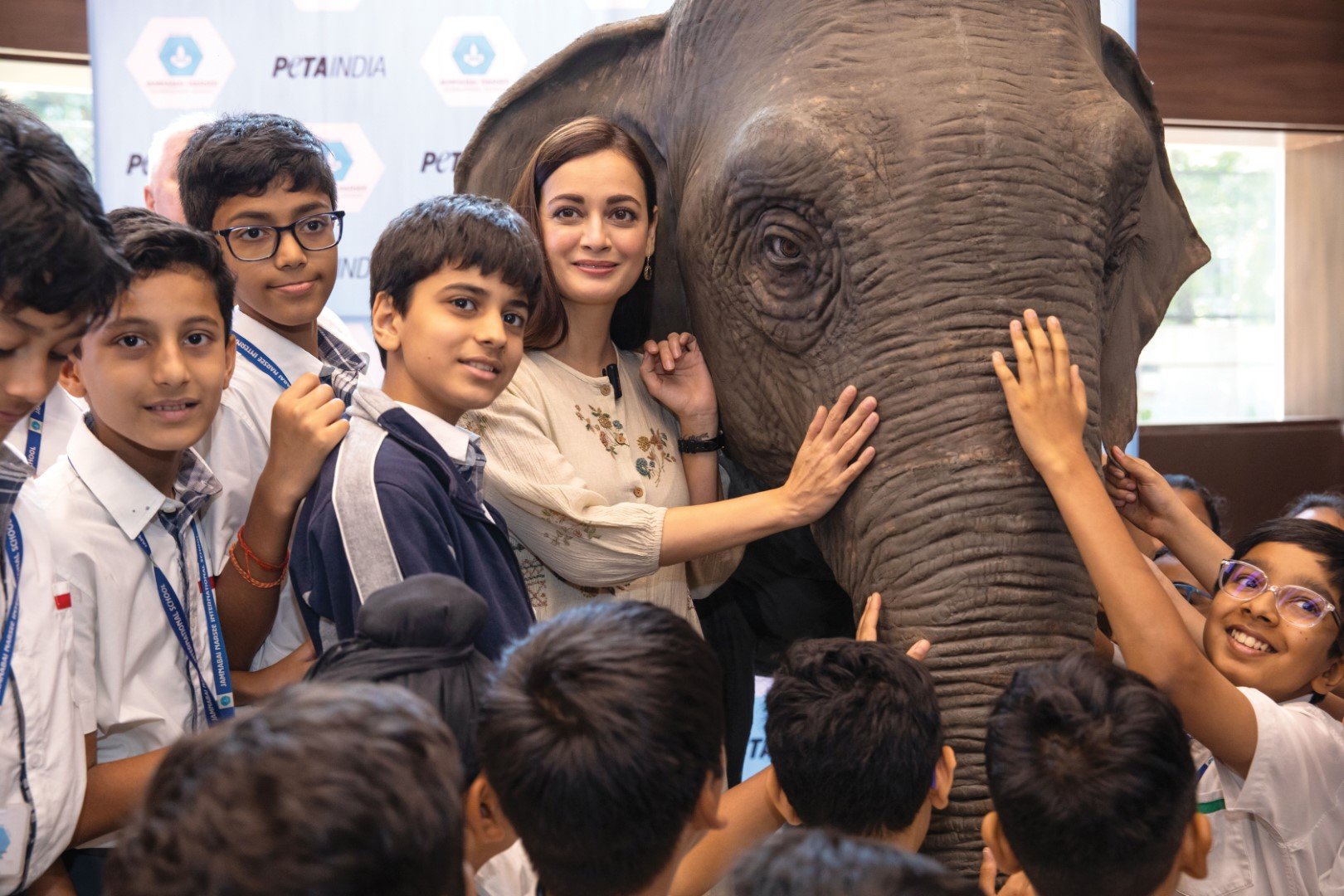
PETA India’s and Animal Rahat’s emergency response teams continue to respond to calls 24 hours a day, 365 days a year, rescuing dogs, cats, cows, bullocks, camels, horses, donkeys, monkeys, and other animals. The groups are also working to build empathy in young people. PETA India’s animatronic elephant, Ellie, tours schools, and Animal Rahat uses an animated video to help children understand the complex nature of bullocks.
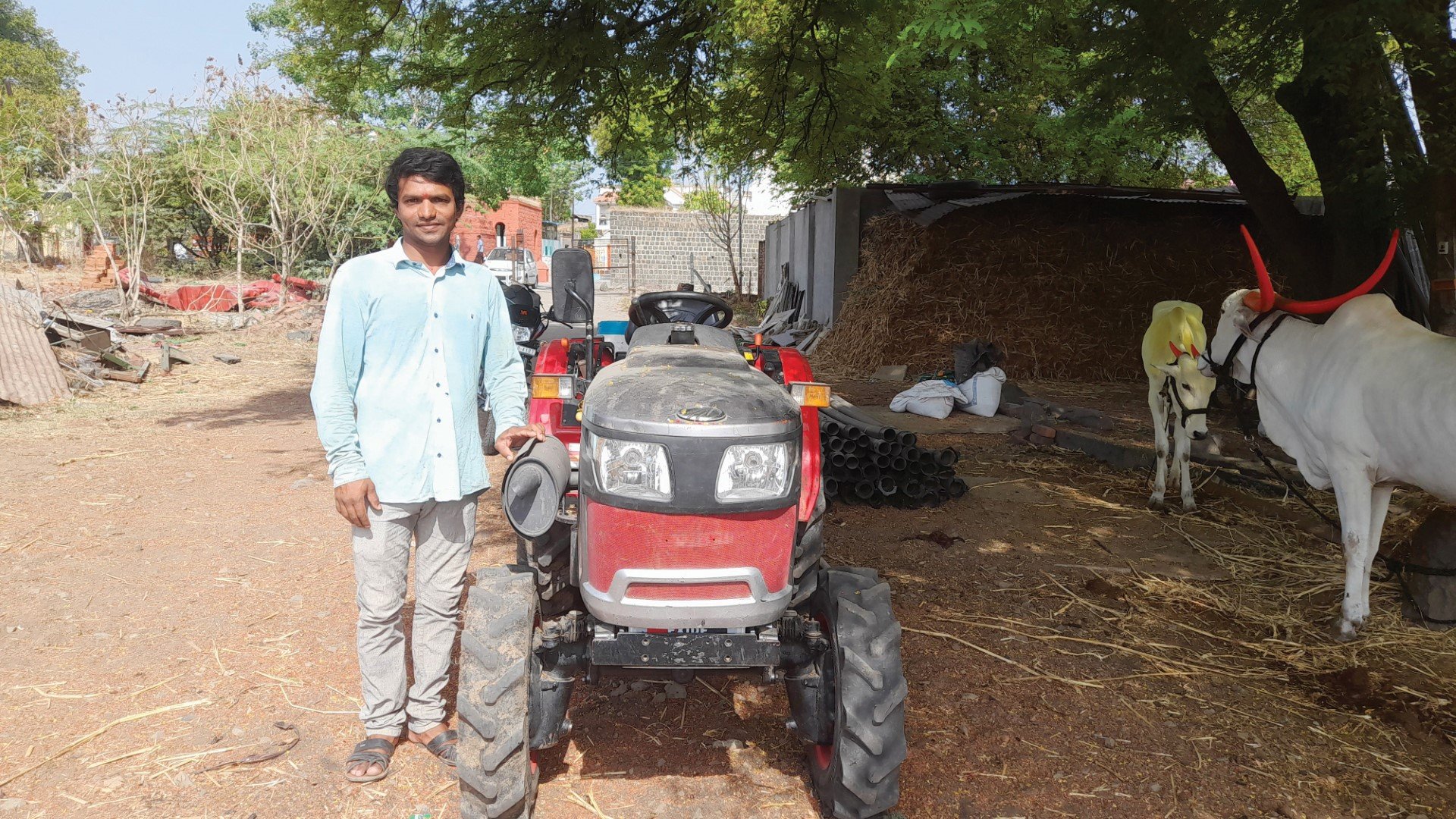
In India, where animals are forced to pull heavy loads, Animal Rahat works to gain the trust of animal owners and then turns the conversation toward mechanization—replacing animals with eco-friendly vehicles or tractors. Animal Rahat’s mechanization projects have saved 57,442 bullocks and 284 donkeys from forced labor.
Animal Rahat opened a new sanctuary for donkeys, horses, mules, and other animals in Karnataka. Through its three sanctuaries, the organization cares for nearly 400 rescued animals. Most of them have been retired from forced labor and, if not for these sanctuaries, would have been sent on a grueling journey to the slaughterhouse. Other animals at the sanctuaries were rescued after having been abandoned. A lucky few just happened to wander into one of these beautiful safe havens on their own!
